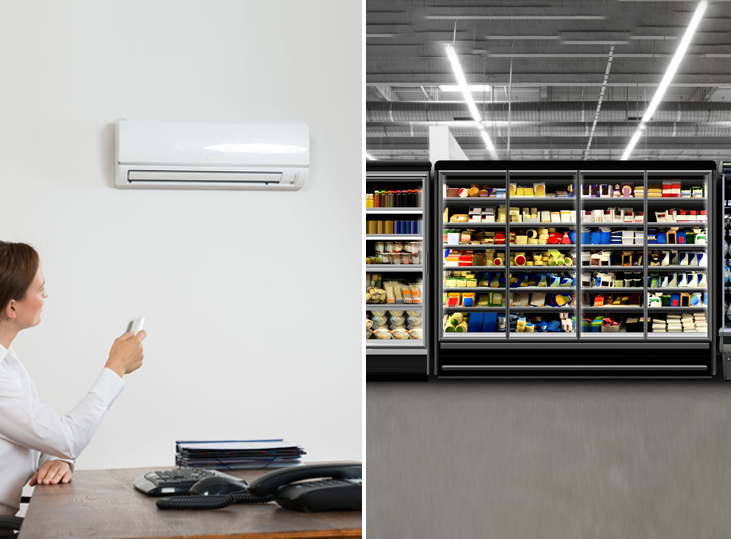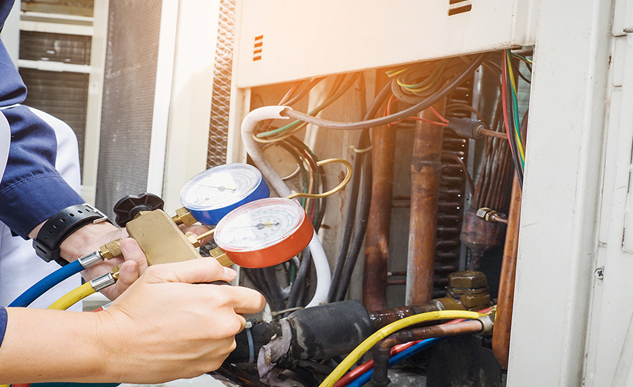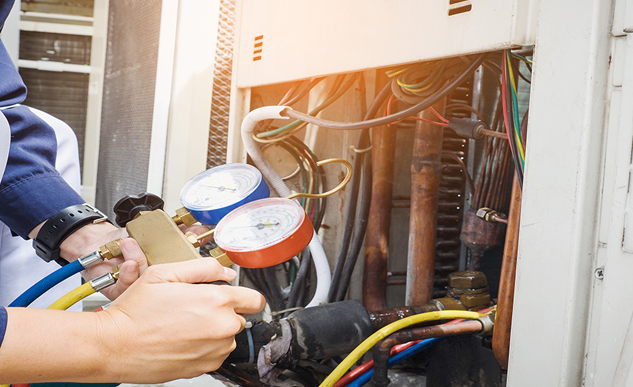Few household issues are as frustrating as an air conditioner that seems to run constantly. Not only can this lead to soaring energy bills, but it also places unnecessary strain on the system, potentially shortening its lifespan. Understanding why your AC overworks and learning simple ways to address it can save both money and stress. In this guide, we will explore the common reasons your system may be running nonstop, easy fixes you can try at home, and how regular air conditioning maintenance can prevent future problems. Whether you rely on quick DIY solutions or professional services, a well-maintained air conditioner ensures consistent comfort and efficiency throughout the year.
Common Reasons ACs Run Nonstop
Why Your Air Conditioner Won’t Stop
Air conditioners are designed to cycle on and off as needed to maintain a comfortable indoor temperature. When your system runs continuously, it is often a sign of underlying issues. Common causes include:
-
Dirty Air Filters – Accumulated dust and debris restrict airflow, forcing the system to work harder and run longer.
-
Thermostat Issues – An inaccurately placed or malfunctioning thermostat can misread the room temperature, causing the AC to operate nonstop.
-
Refrigerant Problems – Low refrigerant levels or leaks reduce cooling efficiency, making the system overwork to maintain the set temperature.
-
Blocked Vents or Ductwork – Obstructions in vents or ducts limit airflow, preventing efficient cooling.
-
Oversized or Undersized AC Unit – Units that are too large or too small for the space may struggle to regulate temperature properly, leading to extended run times.
Identifying the root cause is essential for correcting the problem and preventing long-term damage.
Quick Fixes You Can Try at Home
Easy DIY Solutions for Nonstop Running ACs
Many overworking AC issues can be addressed with simple home interventions before calling a professional. Here are some effective strategies:
-
Replace or Clean Air Filters – Dirty filters are a primary culprit behind nonstop operation. Regularly replacing or cleaning them improves airflow and efficiency.
-
Adjust Thermostat Settings and Placement – Ensure your thermostat is set to the correct mode and positioned away from direct sunlight, heaters, or drafts that may affect readings.
-
Ensure Vents Are Unblocked and Ductwork is Clear – Check that furniture or curtains are not obstructing airflow and that ducting is intact and free from dust build-up.
-
Check for Obvious Leaks or Ice Formation – Ice on evaporator coils or visible leaks can signal refrigerant issues that need professional attention.
Safety Tip: Always turn off the power to your AC before performing any inspections or adjustments to avoid injury or system damage.
While these fixes can resolve many minor issues, persistent overworking may indicate more complex problems requiring expert intervention.
The Importance of Regular Air Conditioning Maintenance
Preventing Overworking ACs Through Maintenance
Routine maintenance is essential for keeping your air conditioning system efficient and extending its lifespan. Regular air conditioning maintenance London ensures that all components are functioning optimally, preventing issues that can cause your AC to run nonstop. Key maintenance steps include:
-
Scheduling Professional Inspections Annually – Certified technicians can detect early signs of wear, leaks, or inefficiency.
-
Cleaning Evaporator and Condenser Coils – Dirt build-up on coils reduces heat exchange efficiency, causing longer run times.
-
Checking Refrigerant Levels – Adequate refrigerant ensures effective cooling and prevents overworking.
-
Lubricating Motors and Fans – Proper lubrication reduces friction and mechanical strain.
Regular maintenance not only ensures optimal performance but also lowers energy bills and minimises the risk of unexpected breakdowns.

Preventive Tips to Avoid Overworking ACs
Keep Your Air Conditioning Efficient Year-Round
Preventing overworking requires a combination of regular maintenance and good habits. Consider the following strategies:
-
Maintain Clean Filters Monthly – Clean filters improve airflow and system efficiency.
-
Use Programmable Thermostats – Avoid unnecessary overuse by setting schedules for cooling only when needed.
-
Keep Outdoor Units Free from Debris – Leaves, dirt, and obstructions reduce condenser efficiency.
-
Ensure Proper Insulation and Sealing of Your Home – Prevents cool air from escaping and reduces AC workload.
Do’s and Don’ts for a Healthy AC
| Do | Don’t |
| Schedule routine air conditioning maintenance | Ignore signs of poor airflow or unusual noises |
| Clean or replace filters regularly | Block vents or restrict airflow |
| Monitor system performance | Attempt complex electrical repairs without training |
| Keep outdoor units clear | Overlook refrigerant leaks or ice formation |
Following these tips helps maintain efficiency, prolongs equipment life, and reduces energy consumption.
When to Call a Professional
Knowing When DIY Isn’t Enough
While DIY fixes are effective for minor problems, certain signs indicate that professional intervention is required. Contact an air conditioning London expert if you notice:
-
The AC continues to run despite cleaning filters and adjusting settings.
-
Strange noises, vibrations, or unusual smells emanating from the unit.
-
Frequent cycling on and off or complete failure to maintain the desired temperature.
Professional technicians have the experience, tools, and expertise to diagnose complex issues, perform air conditioning maintenance, and ensure the system operates safely and efficiently.

Additional Tips for Optimal AC Performance
-
Avoid Obstructing Vents – Ensure furniture or curtains do not block airflow.
-
Seal Windows and Doors – Helps maintain consistent indoor temperatures and reduces overworking.
-
Limit Heat-Generating Appliances During Peak Hours – Reduces the workload on the AC system.
-
Monitor for Unusual Performance – Early detection of irregularities allows timely intervention and prevents prolonged overworking.
Conclusion
An air conditioner that runs nonstop can be both frustrating and costly. Understanding the common causes, applying simple DIY fixes, and maintaining the system regularly through air conditioning maintenance are crucial steps to ensure efficiency and comfort. While minor issues can often be resolved at home, persistent problems or complex mechanical faults should be addressed by a professional air conditioning specialist in London.
For reliable service, expert advice, and comprehensive maintenance, trust Hamilton Air Conditioning Ltd to keep your air conditioning system running smoothly, efficiently, and effectively throughout the year.


